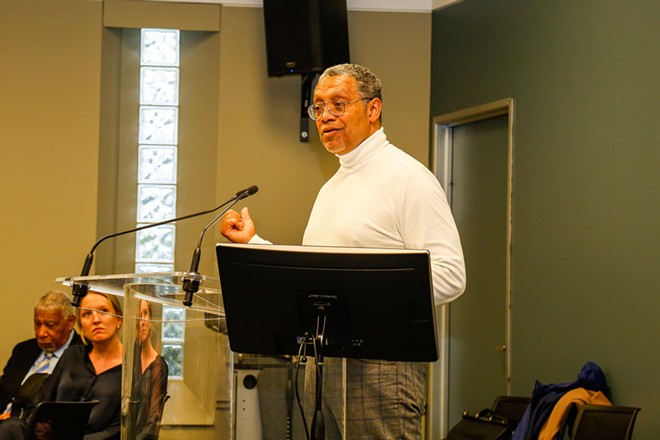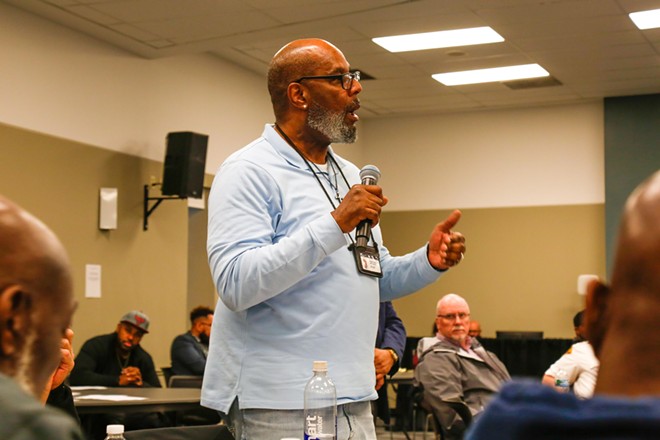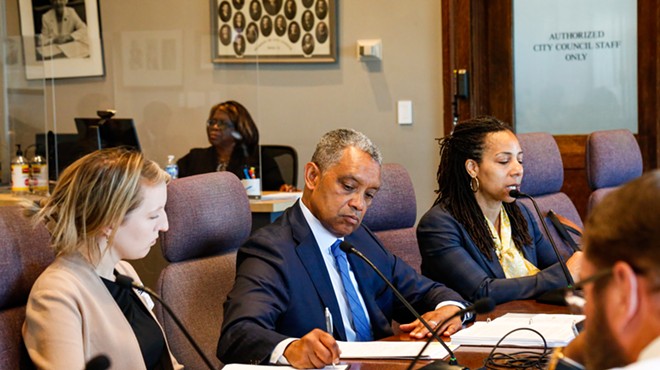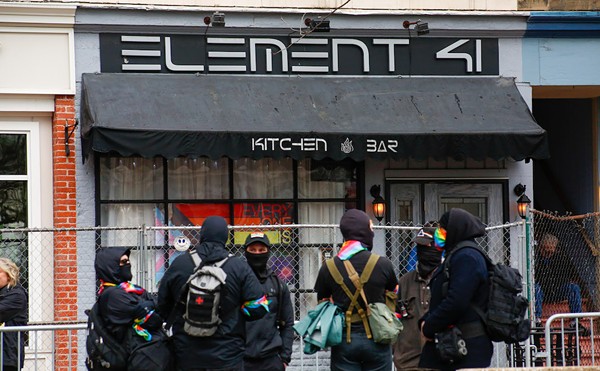
Since last June, that team of 17 from the Washington, D.C.-based firm Hogan Lovells has been keeping close tabs on the behavior and performance of CPD's officers, as far as federally-mandated improvements in use of force, bias-free policing, crisis intervention, and others, in 340 specific points.
That decree, entered into with the U.S. Department of Justice in 2015, stemmed from its findings that Cleveland police engaged in a pattern of excessive force and that various operational issues also plagued its performamce.
Karl Racine, the head of the monitoring team, on Tuesday night took the podium in an event room at Tri-C's Downtown Campus to calmly and intellectually assess what wasn't the best of news: not only was there no change between the team's 13th and 14th semiannual reports, but one area of study, in accountability to the Office of Professional Standards, had been downgraded.
"And so the last period was a period of stagnation as monitor," he clarified.
With the decision by Clevelanders last year to form an overseeing Cleveland Police Commission, matched with increasing concern for how those suffering from mental health crises are treated, many in the audience on Thursday, from activists to church pastors, felt that someone should be held accountable for the evident lack of progress. If not, incorrectly, Racine himself.
Racine, who was D.C.'s AttorneyGgeneral for seven years, handled the criticism in a collected manner, often going into detailed breakdowns of the monitoring team's exact role—as not tied to the CPC or the CPD—to try and ease peoples' worries. Optimistically, Racine noted that one node of study, CPD's progress with crisis intervention officers, was, he believed, "ready for a [federal] assessment."
"Let me say the consent decree is hard. It's onerous. It can be fairly perceived as being a culture change. And that's what the city agreed to," Racine said. "It's not about saying you were bad. It's about saying we can do better."

Last April, the city's Law Department apparently curtailed access to needed data, the report says. And from December to March, a lengthy legal case based on "unfounded reasons" for keeping data private led to Northern District Judge Solomon Oliver, Jr. finally relinquishing the city's blockade on police data, on March 7.
"These delays cost the city and its taxpayers time, money and progress in fulfilling the consent decree's mandate that it police in a constitutional manner," Racine wrote.
Such a sentiment, that the city itself had knowingly delayed its police department's own progress, was felt in the tones in which attendees used to criticize. In the forum's half hour Q&A portion, several used their mic time to contextualize their budding frustrations with Cleveland police.
"I'm saying to the police officers that I see here: the consent decree can leave if you would encourage your counterparts to come into compliance," Brenda Bickerstaff, a member of the CPC, said eyeing a table of men in uniform. "If you tell them, 'Come on, let's get this right, let's get this together,' then you won't see Mr. Racine anymore."
Samaria Rice, the mother of the late Tamir Rice and head of the Tamir Rice Foundation, echoed Bickerstaff's irritation. She called on the room to understand the implications of a no-progress report.
"What's going on?" Rice said in the mic. "This is the third time the consent decree been here in Ohio probably in the last, what? 25, 50 years?"
She turned to the table with three CPD officers. "So for the Cleveland Police Department that's here: I hope you all listen and go back and talk to your people."
Subscribe to Cleveland Scene newsletters.
Follow us: Apple News | Google News | NewsBreak | Reddit | Instagram | Facebook | Twitter | Or sign up for our RSS Feed
















